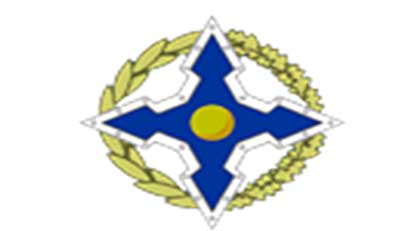Relevance: GS-2: Important International institutions, agencies and fora- their structure, mandate.
Why in News?
- Eruption of mass unrest in Kazakhstan in the opening days of the new year (2022) over the hike in fuel prices in the country and help sought by Kassym-Zhomart Tokayev, the country’s president on 6th January, 2022 from the Collective Security Treaty Organisation (CSTO) to quell the protests
Issue:
- Kazakhstan, the oil-rich country of 19 million people has seen mass unrest in the opening days of the New Year over the government’s decision to end subsidies on liquefied petroleum gas.
- Although the decision was taken three years ago, on January 1, 2022 the fuel prices became fully market-based. The cost of LPG, which many Kazakhs use instead of petrol or diesel to run their cars, soon shot up, doubling in some places from 60 tenge ($0.14) per litre at the end of last year to 120 tenge by January 2.
- As protests spread around the vast country demanding regime change instead of redressal of a specific grievance , the country’s President sought help of the Collective Security Treaty Organisation (CSTO.
- Kazakhstan has also witnessed growing labour and ethnic unrest in recent years. Despite its oil wealth, low salaries and poor working conditions have always been issues.
- The protesters, chanting slogans, such as “old man out”, burned statues of Nursultan Nazarbayev, the country’s powerful leader, who stepped down as President in 2019, but retained an outsize influence over the government
What is the Collective Security Treaty Organisation ?
- The Collective Security Treaty Organization (CSTO) is an intergovernmental military alliance (six countries) that came into effect in 2002. Its’ origin can be traced to the Collective Security Treaty, 1992 (Tashkent Treaty).
- Currently it has six members: Armenia, Belarus, Kazakhstan, Kyrgyzstan, Russia and Tajikistan. Uzbekistan had quit the alliance in 2012. Afghanistan and Serbia hold observer status in the CSTO.
- The headquarter of CSTO is located in the Russian capital of Moscow.
Evolution of the Collective Security Treaty Organisation
- Disintegration of USSR in 1991 also resulted in the end of Cold War and dissolution of the Warsaw Pact (an alliance of eight socialist states including USSR) which was the Soviet Union’s answer to North Atlantic Treaty Organization(NATO)
- The CSTO began out of the structure of the Commonwealth of Independent States (CIS) and initially was the Collective Security Treaty (CST) signed in 1992 by Armenia, Kazakhstan, Kyrgyzstan, Russia, Tajikistan and Uzbekistan in Tashkent. Azerbaijan, Georgia and Belarus would later sign the treaty in 1993 and it came into effect in 1994
- In 2002, it declared itself the Collective Security Treaty Organisation, a full-blown military alliance having rapid-reaction force comprising 20,000 elite personnel who are kept on high alert.
- The alliance has also held joint exercises, including a series of high-profile “anti-terrorism” drills in 2021 in response to the growing chaos in Afghanistan. Infact Tajikistan, a member of CSTO shares a border with Afghanistan.
.jpg)
What is Article 4 of CSTO and its envocation in Kazakhstan?
- Article 4 of CSTO is very similar to NATO’s Article 5
- Article 4 of the Collective Security Treaty upon which the organization was established states that an armed attack threatening the security, stability, territorial integrity, and sovereignty of one of its members will be viewed as an act of aggression against all member states.
- CSTO invoked Article 4 owing to the growing chaos in Kazakhstan as the President blamed foreign-trained “terrorist gangs” for the protests.
Geopolitical significance of CSTO for Russia:
- For Russia, the CSTO is a useful tool to tighten its grip on Central Asia, against both Western and Chinese encroachments. It justifies Russian military facilities in member countries, while also giving Russia a veto over any other foreign bases in the region. In turn, the CSTO’s members benefit from cooperation with Russia’s advanced armed forces, including training and discounted arms sales.
- President Vladimir Putin has long claimed that Kazakhstan, like Ukraine, is not a real country, and instead simply part of the “greater Russian world”. In 2010, when Kyrgyzstan sought the group’s help in quelling an outbreak of violence, Russia declined to step in. A decade on, and with wars in Ukraine and Syria under its belt, the Russian influence has only grown.
A good sign for other alliance members:
- The alliance’s quick response may be a reassuring sign to the alliance’s other strongmen, including Alexander Lukashenko of Belarus, who received Russian — but not CSTO — assistance last year against his own protesters, and Tajikistan’s Emomali Rahmon, who has been in power for 28 years. In 2010, when Kyrgyzstan sought the group’s help in quelling an outbreak of violence, Russia declined to step in.
Way Forward:
- For Mr. Tokayev,the current President this is the biggest crisis of his presidency, but also an opportunity.
- It is a crisis because in a country where the public was taught to adulate their rulers, the violent clashes raise both political and security challenges to the ruling elite.
- On the other side, it is an opportunity for the President to come out of the shadows of the old regime.
- The outcome of the current crisis would largely depend on the choices he would make. Dealing with the protests only through force, including with help from Russia — the Belarus model — would not resolve the underlying issues. The other option, the most sensible one, is to reach out to the angry public, hold consultations and build consensus to enter a new social contract with the people of Kazakhstan.
- Recent intervention by CSTO is a good sign for other alliance members.
Source: The Hindu , Indian Express , Foreign Policy.com








